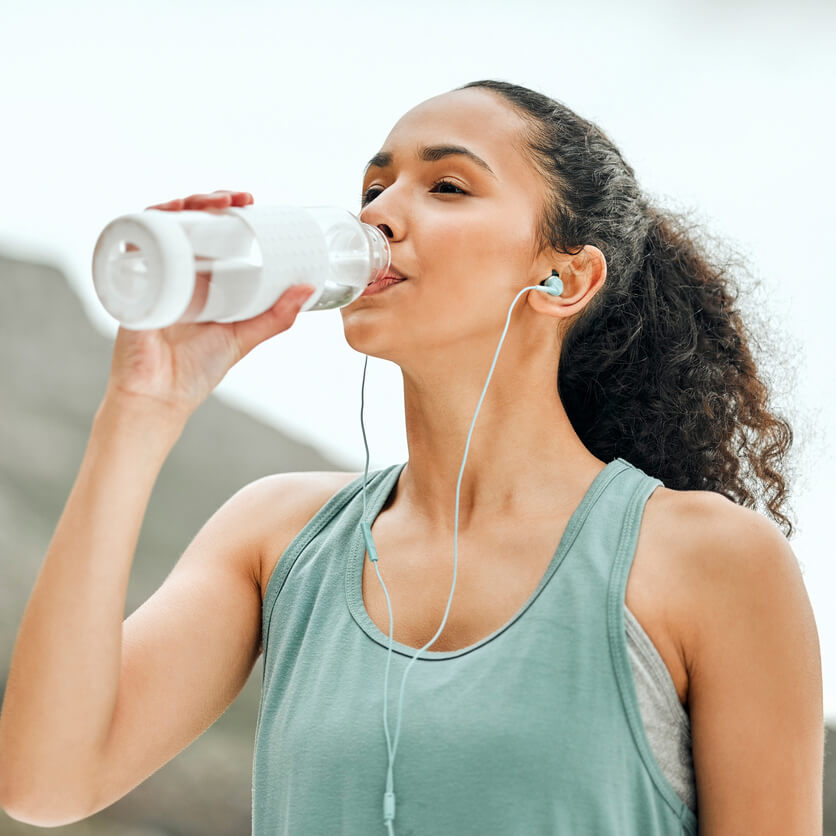America’s Chronic Dehydration Problem
Water is the foundation of our planet. It covers 71 percent of our earth’s surface and 60 percent of the human body, making it a critical element to all of life. Then why is it that 75 percent of all Americans are suffering from chronic dehydration?
A survey conducted by New York Hospital and Cornell Medical Center found that 75% of its 3,003 subjects were experiencing net fluid loss from chronic dehydration. It is, therefore, no exaggeration to say that America is indeed facing a dehydration crisis.
Health Effects of Chronic Dehydration
Chronic dehydration can lead to an immense amount of concerning health issues as it has been linked to decreased kidney function, kidney stones, hypertension, urinary tract infections, intestinal failures, and even dementia. And while this evidence is already devastating enough, the truth is; researchers are only just starting to understand all the many effects that chronic dehydration could be wreaking on our bodies. And who knows what further harm this epidemic may be creating for chronically dehydrated Americans.
Why does Chronic Dehydration Occur?
Chronic dehydration is a rather strange phenomenon considering the body is programmed to alert us when we are water deficient through the brain’s sensation of thirst. What’s more, much like your car’s gas gauge, our brains are programmed to give us this sensation well before we reach the stage of dehydration, even as soon as when we are only a few hundred milliliters short of water.
However, many biological and social factors have emerged to help us ignore our brain’s signal and quicken the onset of dehydration.
When we feel this sensation of thirst, many of us will turn to sugary sodas or caffeinated beverages to cure our thirst; but the truth is, these beverages only serve to extrapolate the issue further. Adding to the problem, many of us can confuse our brain’s signal for thirst as a need for rest or food. “People think that when they start to get weak, or they have a headache, they need to eat something” explains Grace Webb, Assistant Director for Clinical Nutrition at New York Hospital, “but most often they need to drink.”
Those of us who engage in strenuous exercises like mountain biking or marathon running also expel more water than most Americans and therefore require a higher intake. Athletes who engage in any incline or altitude sports may also find themselves particularly susceptible to dehydration as high altitude can lead to excessive sweating and promote more aggressive breathing, all of which leads to heightened water loss.
And finally, there are a large number of biological factors that can lead to a higher risk for chronic dehydration. Infants are especially predisposed to dehydration as their bodies are composed of 78 percent water and therefore need an increased intake. The elderly also carry a higher risk as their thirst mechanism grows increasingly weaker as they age and those with dementia have a 600% higher chance for dehydration. Those suffering from chronic diseases such as diabetes or kidney problems can also suffer from chronic dehydration due to the onset of frequent urination.
Is Your Body Telling You It Needs More Water?
What Can Be Done
While chronic dehydration is indeed a severe problem in America, there is so much that can be done to combat the issue.
- Drink plenty of water- often the simplest advice is the best, just ensure that you are doing all you can to get your daily allotment of water. There are many great apps today that can help you track down your water intake such as MyFitnessPal and My Water Balance, or you can go the old school manual route and fill up a large container with your daily allotment in the morning and ensure that is is all consumed by the end of the day.
- Integrate more fruits and vegetables into your diet- while upping your water intake is hands down the best path for battling chronic dehydration, fruits and vegetables are filled with water as well. By boosting your fruit and vegetable intake, you are absolutely helping to combat dehydration.
- Avoid or limit drinks with caffeine, soft drinks and alcohol- these substances are diuretics and can, therefore, cause our bodies to expel a great deal of water, which in effect will lead to dehydration. By avoiding or at least limiting these drinks, you are ensuring that your body stays possibly hydrated.
- Carry water with you where you go- bring an eco-friendly reusable water bottle with you on the go, so you can ensure you have water available at all times. To ensure that your water is clean, healthy and tastes great- consider bringing along a portable water purifier like the GOpure Pod. If you hate the taste of water, you can always add a slice of lemon or lime to give your water a fruity kick.
Why We Must Take Chronic Dehydration More Seriously
The statistics on dehydration are staggering, and it is clear that America is undergoing a severe dehydration crisis. So many of our modern health complications may be able to be either reduced or perhaps even remedied by simply integrating more water intake into our daily lives. It’s time to take this issue more seriously.
So many Americans are suffering, and the easy solution is sitting right in front of them. Simply drink more water. It is the foundation of the earth, and it should, therefore, should be a foundation for our diets.
Frequently Asked Questions
How long does it take to reverse chronic dehydration?
Recovery time for chronic dehydration depends on the severity of the case and the length of time spent in dehydration. Severe cases that require hospitalization, such as heatstroke, can take more than a day or two to reverse.
What causes chronic dehydration?
Chronic dehydration most commonly occurs due to lack of proper water intake whether from negligence, busyness, or lack of access to safe, drinkable water. Diarrhea, vomiting, fever, excessive sweating, and urination can also lead to chronic dehydration.
How to treat/cure chronic dehydration?
In most cases, chronic dehydration can be treated by drinking plain water or water-based drinks with added electrolytes to restore your body’s electrolyte balance.
Long-term prevention plans must then be put in place to ensure you remain consistently hydrated. Dehydration prevention plans utilize techniques such as tracking daily water intake, decreasing alcohol consumption, monitoring stress levels, reducing diuretic medication therapy, and cutting back on caffeine and other dehydrators.





